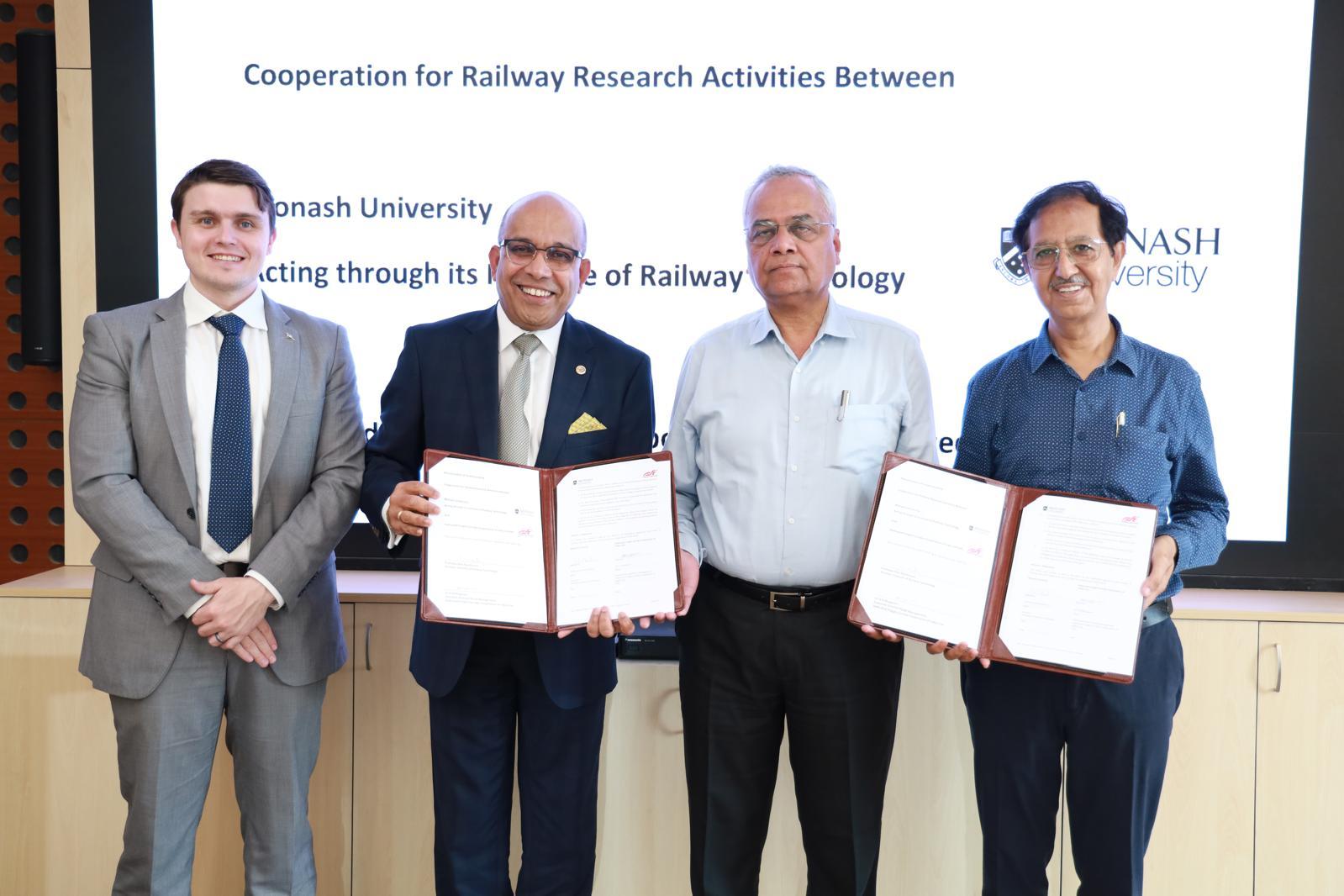
Monash IRT enters strategic partnership with DFCCIL aiming at transforming rail freight networks
NEW DELHI : India and Australia have entered a strategic partnership to elevate heavy haul railway technology through a new Memorandum of Understanding (MoU). Monash University’s Institute of Railway Technology (IRT) and the Dedicated Freight Corridor Corporation of India Ltd (DFCCIL) have agreed to collaborate on research and training aimed at transforming rail freight networks in both countries.
A key focus is the development of low‑carbon, sustainable rail corridors that address logistics efficiency, cost reduction and equitable urban integration. Under the agreement, Monash IRT will support DFCCIL in extending India’s dedicated freight corridors via translational research, centred on heavy haul operations. Prospective initiatives include a joint Centre of Excellence for rail maintenance and wheel‑rail interface management—critical for ensuring the longevity and sustainability of line haul infrastructure.
Professor Ravi Ravitharan, Director of Monash Institute of Railway Technology, and Sri G D Bhagwani, Executive Director, Asset Management of Dedicated Freight Corridor Corporation of India Ltd, signed a Memorandum of Understanding (MoU) alongside Mr Nathan Davis, Trade and Investment Commissioner, Australian Trade and Investment Commission South Asia, to cooperate in advancing research and training activities in railway engineering, specifically focusing on heavy haul railways.
The MoU builds on Monash IRT’s global credentials: it has partnered with over 160 rail entities across more than 700 projects since 2000, and is recognised as Australia’s premier track and vehicle research centre. It brings proven expertise in technical solutions targeting cost, safety and environmental performance.
For India, DFCCIL oversees construction of dedicated freight corridors spanning thousands of kilometres, serving both industrial and hinterland regions. The partnership will support advanced engineering solutions tailored to India’s mix of heavy haul and passenger networks, ensuring equitable connectivity across urban, semi‑urban and rural zones. The collaboration reflects both nations’ commitments to eco‑friendly transport. Australia’s national rail plan aims for a net zero emissions future by 2050, leveraging institutions like Monash IRT. Similarly, India is prioritising modal shift to rail to reduce road congestion and curb overall carbon footprints—a core component in sustainable city frameworks.
Beyond technology, the MoU will foster capacity‑building via executive training and joint education programmes – strengthening gender‑neutral access and inclusive skills development across railway professions. Previous Monash‑India collaborations include the IIT‑Monash Academy and partnerships with Tata Steel and Gati Shakti Vishwavidyalaya, reinforcing a deepening research‑to‑impact agenda. The partnership is expected to fuel innovation not only in heavy haul logistics but also extend to smart maintenance technologies, digital inspection systems and interoperable rail standards that benefit both public and private-sector stakeholders.
Delhi‑Melbourne’s combined strengths are set to catalyse smarter, greener rail corridors, while supporting equitable access to cities and industrial hubs. As global freight demands rise and climate goals tighten, this MoU signals a timely and pragmatic stride towards sustainable, resilient rail infrastructures that bridge continents and communities

